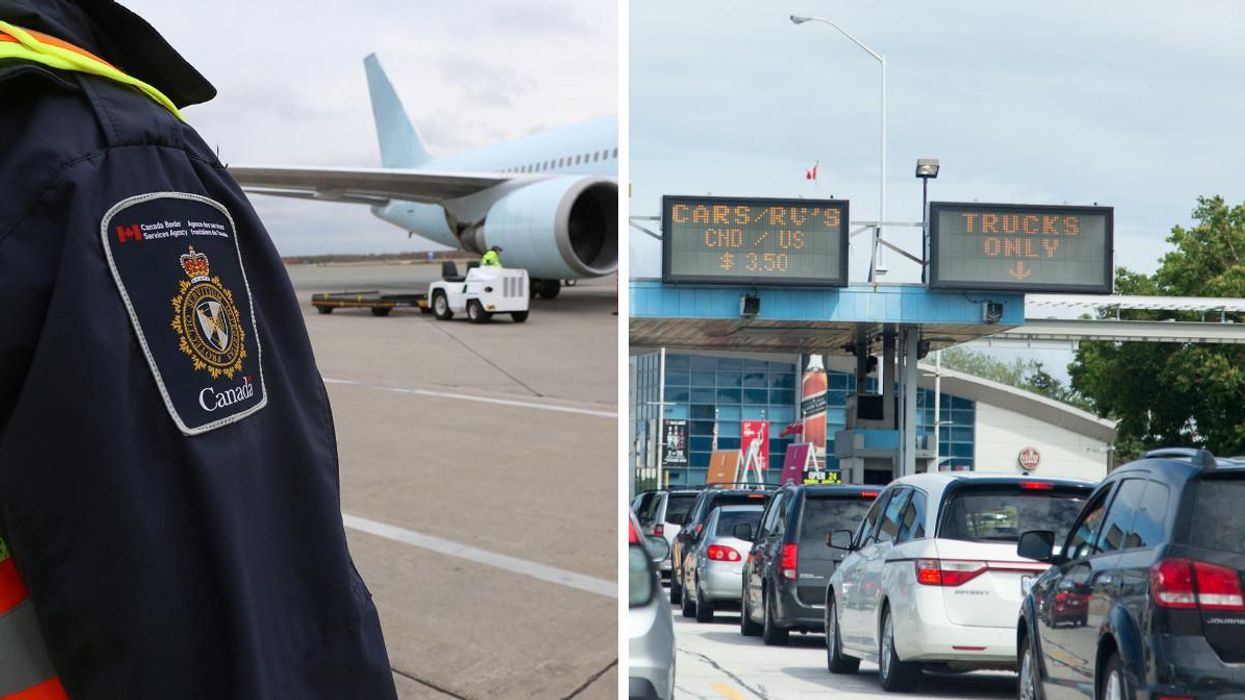
With the U.S. border set to fully reopen to Canadians for the first time in 20 months, there are a number of rules, restrictions and recommendations to be aware of before Monday, November 8.
From testing requirements and associated costs, to the regulations for returning home to Canada, here's what you need to check before driving or flying to the United States:
Vaccine passports
The United States’ new international air travel policy, effective November 8, replaces the existing country-by-coun… https://t.co/tLD9Bzepld
— Department of State (@StateDept) 1635197400.0
To enter the U.S. via air or land from November 8, all non-essential travellers must be fully vaccinated. This means showing proof of a full course of an accepted COVID-19 vaccine.
On October 29, the U.S. Centers for Disease Control and Prevention (CDC) confirmed that there would be three document types that are eligible:
- Verifiable digital or paper records (like a vaccination certificate with a QR code or a digital pass with a QR code on a smartphone app)
- Non-verifiable paper records (like a printout of a COVID-19 vaccination record or a COVID-19 vaccination certificate issued at a national or local level or by an authorized vaccine provider)
- Non-verifiable digital records (like a digital photo of a vaccination card or record or a downloaded vaccine record or vaccination certificate from an official source)
All of the above must also include personal identifiers that match a traveller's passport or other travel documents.
Testing requirements
While all non-essential travellers crossing the U.S. border must be fully vaccinated whether they're arriving via land or air, the rules for testing are slightly different.
From November 8, anybody entering the country via plane must provide proof of a negative COVD-19 test, taken within 72 hours prior to travel.
The CDC says that the negative result must be shown to the airline before you board any flight. Both rapid antigen tests and molecular tests are accepted.
The same does not apply to those crossing the Canada-U.S. land border. Drivers are exempt from providing a test upon arrival in the States, although they must still show proof of full vaccination against COVID-19.
Wait times
Officials in the United States have already issued a warning related to travel times when restrictions lift at the land border in November.
On October 29, the American Department of Homeland Security (DHS) warned that travel volumes and wait times are expected to increase and said travellers should prepare for long lines and "exercise patience."
In short — don't leave everything until the last minute if you have to be somewhere for a set time!
Mask mandates
(1/3) Travel during the #Covid19 pandemic remains high-risk. The #GOC recommends travellers have a full series of a… https://t.co/PSWI7CczwZ
— Health Canada and PHAC (@GovCanHealth) 1634933675.0
In both Canada and the United States, passengers are required to wear a face mask during flights, in the airport and in many other associated public spaces. Failing to comply on Canadian airlines could actually result in fines of up to $5,000.
While there are exceptions for those who have medical exemptions, as well as during meal times, generally everybody catching a flight must have an accepted and appropriate face covering.
As mask mandates vary in regions across both Canada and the States, it's important to check the rules at your destination before arriving.
Even if you're driving, you may need a face covering upon arrival at your hotel, shopping destination and more!
Returning home
Fully vaccinated Canadians travelling to the U.S. will still need a negative molecular COVID-19 test to return home, regardless of whether they're driving or flying.
This includes those who are crossing the land border for short trips, like people visiting the States for 24 hours or less.
Speaking on the matter in October, government officials in Canada said that testing at the border had "proven to be one of the more effective requirements" for travellers and thus wouldn't be changing in the immediate future.
Associated costs
Testing requirements on both sides of the border could make a trip more expensive than originally anticipated.
Those travelling to the United States via plane should expect to pay around $30 for a rapid antigen test, which can give results in 20 minutes or even less. They can be picked up at Walmart for less than $20, at Shoppers Drug Mart for $40 and at pharmacies all over the country at different prices.
It's more expensive to get a molecular test when returning to Canada, though.
All discretionary travellers aged five and up must take a molecular test, which are a little harder to come by and generally need to be booked in advance. They must be taken within 72 hours before a traveller's return and the turnaround time is usually between 24 and 48 hours.
In the States, big chains like Walmart, Walgreens, RiteAid and CVS offer testing and some even have free services. However passengers must plan ahead, as not getting your results on time could mean being unable to return home.
Pre-purchased PCR tests that can be self-administered on the trip generally cost at least $100. Rexall Pharmacy sells a take-home test starting at $200, while Costco sells do-it-yourself PCR tests for $120.
Air Canada recently launched its own DIY testing kits too, with portable RT-LAMP test kits (which are suitable for entry to Canada) starting at $149.
Before you get going, check our Responsible Travel Guide so you can be informed, be safe, be smart, and most of all, be respectful on your adventure.
6 Things Canadians Should Remember Before Crossing The US Border When It Fully Reopens
Source: News Article Viral


0 Comments